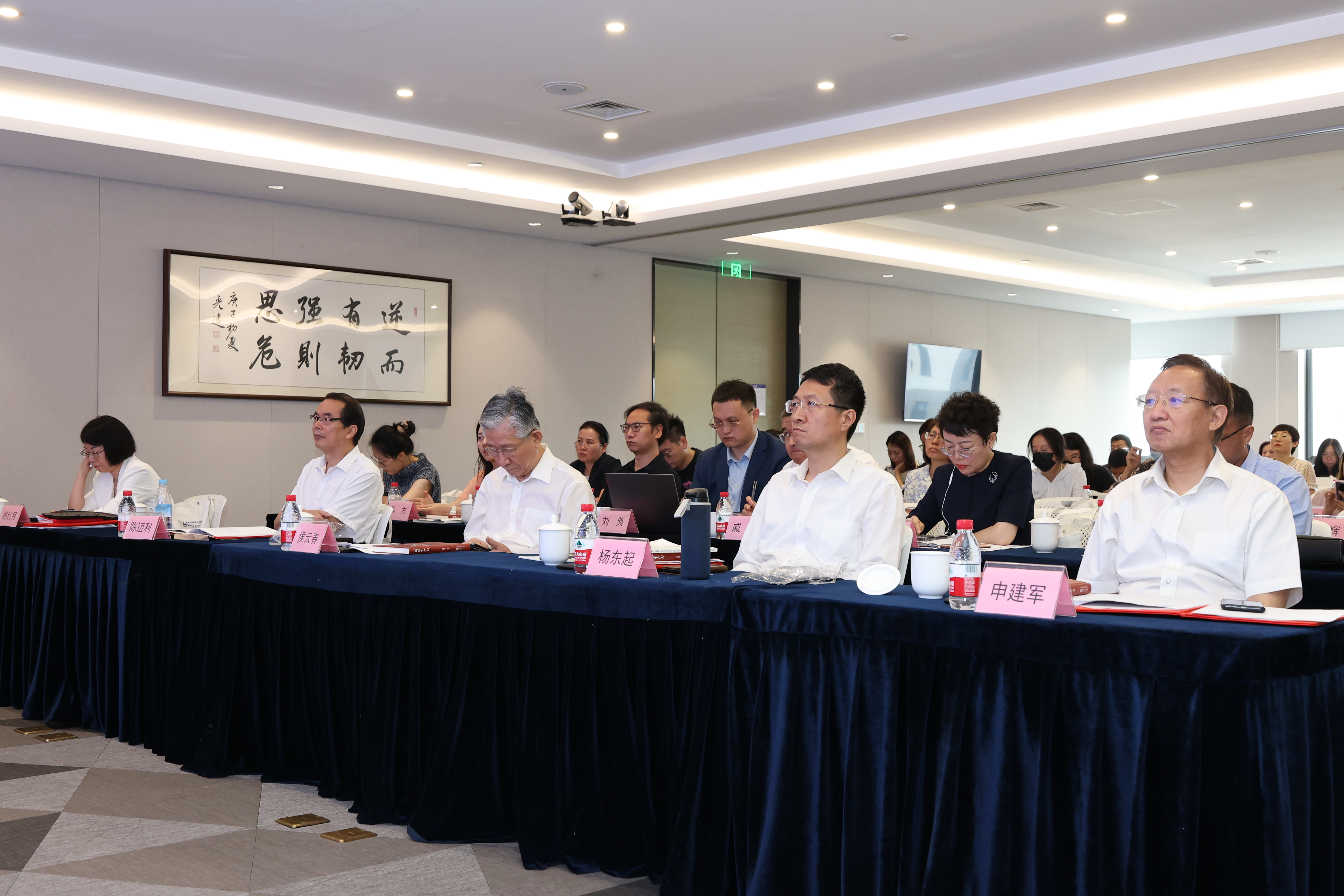
 0 Comment(s)
0 Comment(s) Print
Print E-mail China.org.cn, July 8, 2024
E-mail China.org.cn, July 8, 2024Beijing has distinctive local strengths and significant potential to develop new quality productive forces, experts said at a symposium Friday.
The capital city has taken the lead in original innovation nationwide, said Jia Pinrong, a researcher at the Beijing Academy of Science and Technology, as showcased by the joint efforts to build an international center for science and technology innovation.
Home to 28.1% of the country's key laboratories, Beijing boasts high-quality education as well as a solid foundation for developing high-tech industries, Jia noted.

Attendees at a symposium on new quality productive forces in Beijing, July 5, 2024. [Photo provided to China.org.cn]
Data shows that Beijing has cultivated two trillion-yuan industrial clusters for new-generation information technology and tech services, as well as eight 100-billion-yuan industrial clusters including medicine and health care, integrated circuits, intelligent manufacturing and equipment, and new materials .
In addition, future-oriented industries such as brain-like intelligence, quantum information and future space technology are beginning to take shape, laying a reliable industrial foundation for the development of new quality productive forces, said Yang Dongqi, deputy Party secretary of the Beijing Academy of Science and Technology.
However, while these emerging and future-oriented industries are not equal to new quality productive forces, they need to be well integrated with digital technologies, according to Hou Yunchun, former deputy director of the Development Research Center of the State Council and president of the China Enterprise Evaluation Association.
Hou called for leveraging the role of data elements to advance industrial cluster development and digital transformation, with increased input for research and development and better integration between the digital economy and the real economy.
The symposium was part of an event marking the release of Jia's new book about new quality productive forces. He noted that the coordinated development of the Beijing-Tianjin-Hebei region will help shore up weak links in the capital city's industrial chains.
With Tianjin's greater strengths in the layout of strategic emerging industries and Hebei's efforts in advancing competitive traditional industries, it is essential to promote the coordinated innovation of the region, hence fostering new growth drivers, he said.